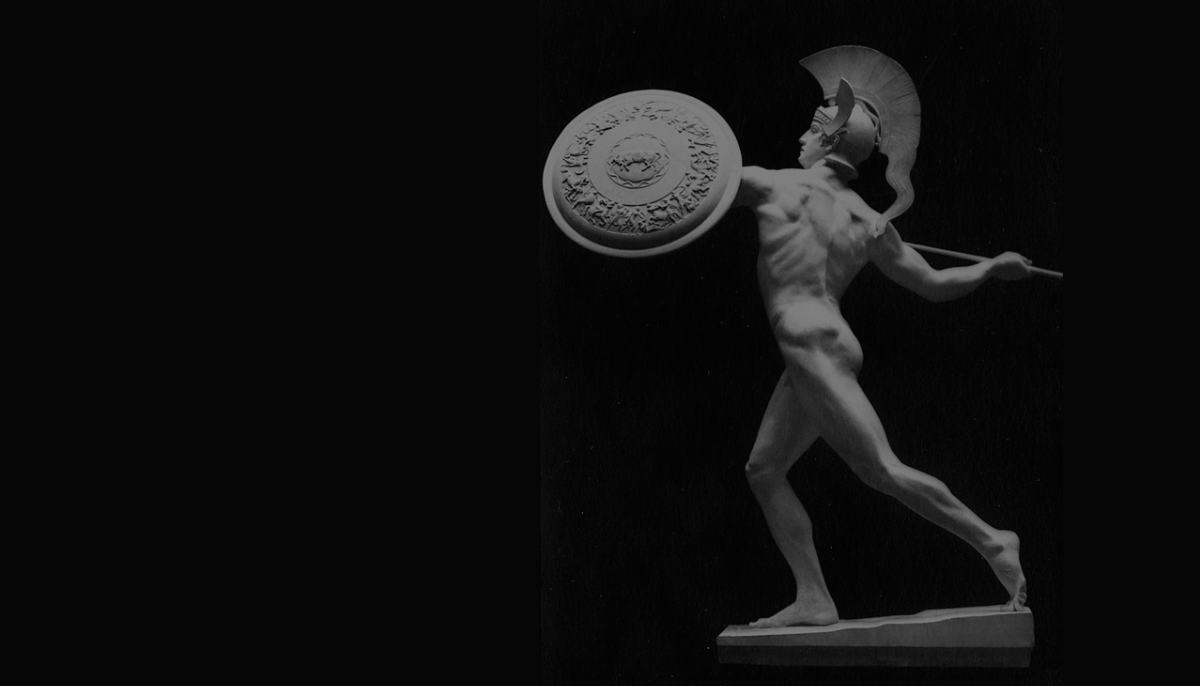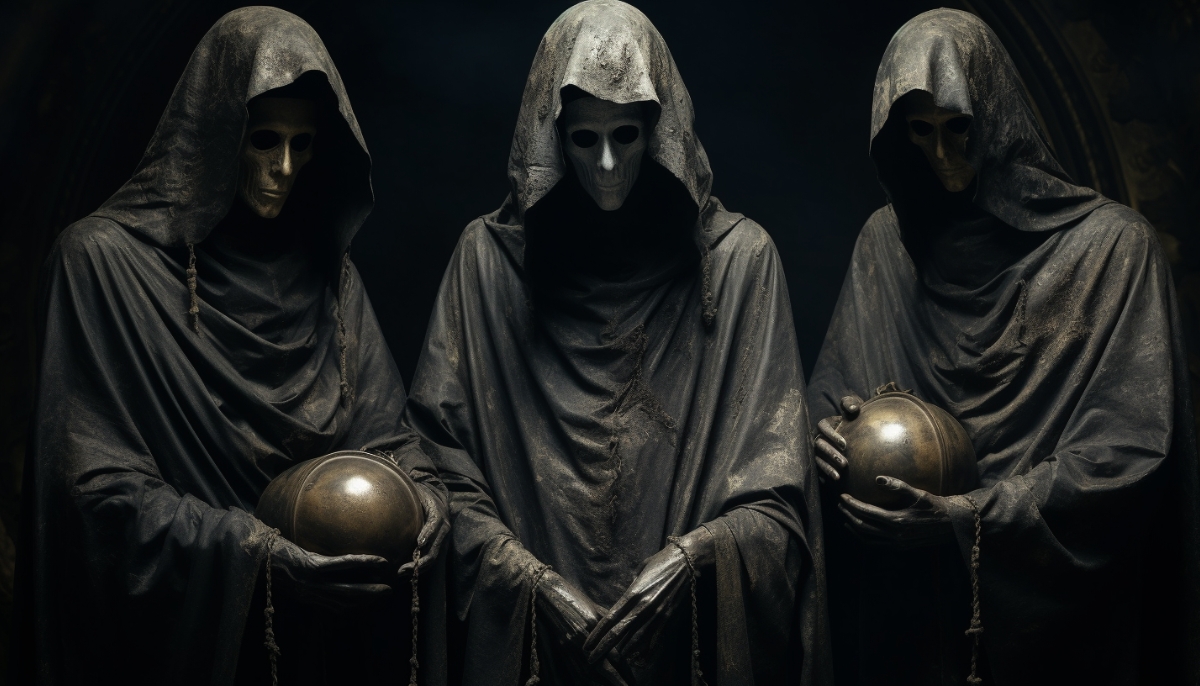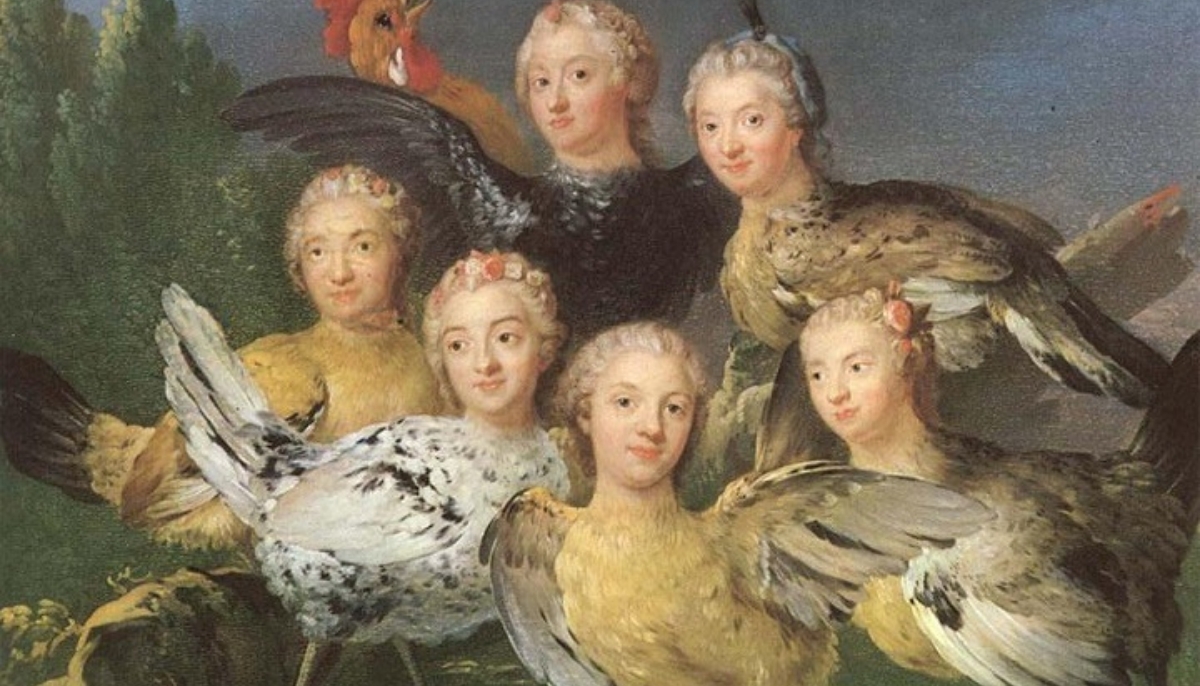In the annals of history and the realms of myth, few figures loom as large as Alexander the Great and Achilles.
These icons, one a Macedonian king who aspired to conquer the world and the other a Greek hero straight out of Homer’s epic, the Iliad, have captivated our imaginations for centuries.
Strap in as we delve into the fascinating intertwining stories of Alexander and Achilles—men separated by time but united by legacy, ambition, and maybe even a touch of divinity.
Alexander the Great’s Divine Lineage
Alexander believed he was directly descended from Achilles through his mother, Olympias. Alexander’s father, King Philip II of Macedon, also claimed divine ancestry.
Philip was said to be a descendant of Heracles, another heroic figure from Greek mythology. So, in essence, Alexander’s bloodline had competing mythic origins.
No legend is complete without a tale of divine birth, and Alexander’s life story is no exception. His birth was said to be accompanied by a series of auspicious signs: thunderbolts, eagles, and unquenchable fires—all omens believed to signify divine favor.
Connection to Zeus
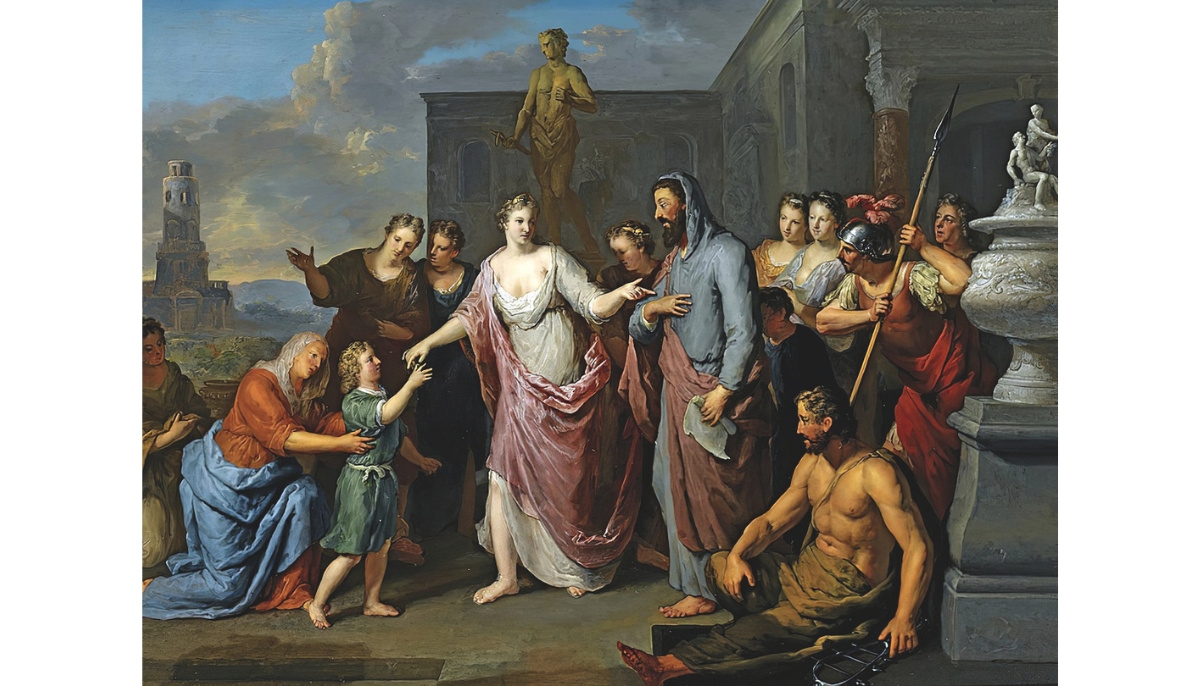
Olympias, Alexander’s mother, claimed her son was fathered by none other than Zeus, the king of the gods.
Stories even circulated of Olympias dreaming of a lightning bolt that sealed her womb, signifying Zeus’s divine intervention.
This not only bolstered the idea that Alexander was a direct descendant of Achilles but also added the possibility of his being a demi-god, sired by Zeus himself.
Alexander’s Fascination with Achilles
The young Alexander was spellbound by Homer’s Iliad, the tale of the Trojan War, and the brave Greek warrior Achilles.
It was said that Alexander slept with a copy of the Iliad under his pillow, annotated by his tutor, the great philosopher Aristotle.
But this was no ordinary bedtime story for Alexander. In Achilles, he found a kindred spirit—a warrior of unparalleled skill, fated for greatness yet touched by tragedy.
A Pilgrimage to Troy
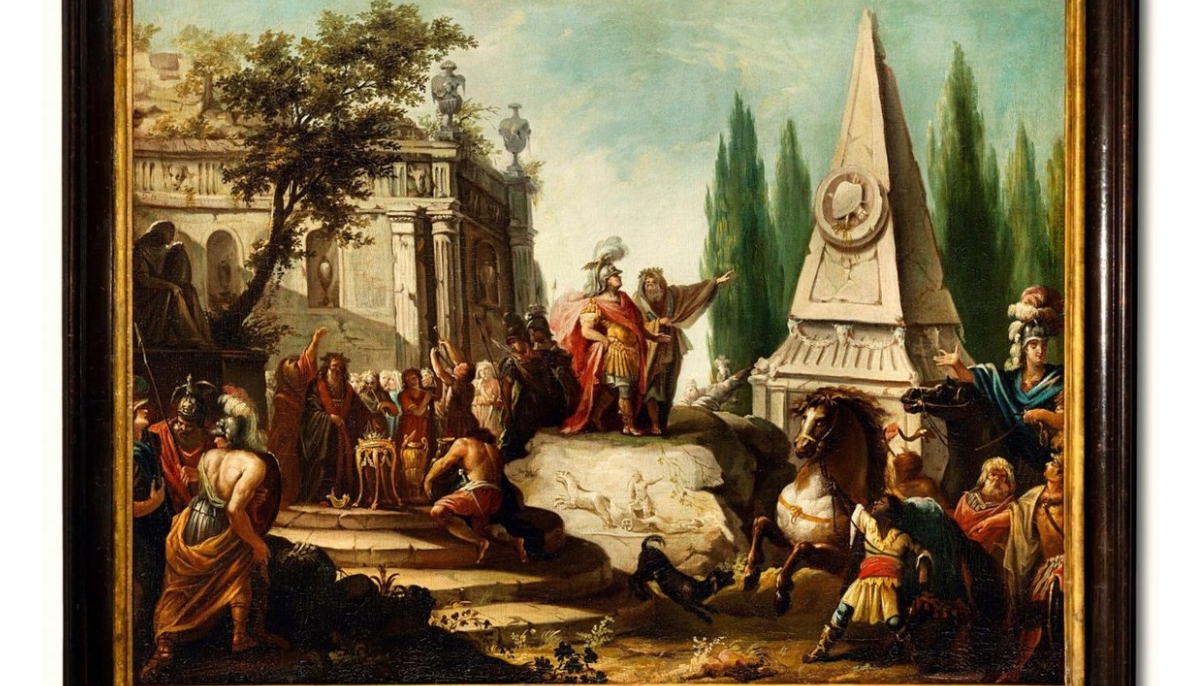
Alexander’s belief wasn’t just in his head; it dictated his actions. During his Asian campaign, he even made a pit stop at Troy, Achilles’ battleground.
There, he anointed Achilles’ tomb with oil and held athletic contests to honor the hero. This wasn’t just hero worship; it was almost like a religious pilgrimage.
For Alexander, being the new Achilles was not just an aspiration but a birthright. This belief influenced his military campaigns, his leadership style, and even his divine claims, which we’ll delve into later.
How Alexander Sought to Emulate Achilles
In military prowess, Alexander saw the reflection of Achilles’ valor in his ambitions. Achilles was unmatched in personal combat and tactical intelligence during the Trojan War, as depicted in the Iliad.
Similarly, Alexander displayed uncanny military ingenuity, from the cutting of the Gordian Knot to the audacious strategies employed at the Battle of Gaugamela. It’s as if every campaign was meticulously crafted to be a tribute to Achilles’ exploits at Troy.
Leadership Traits: The Makings of a Hero-King
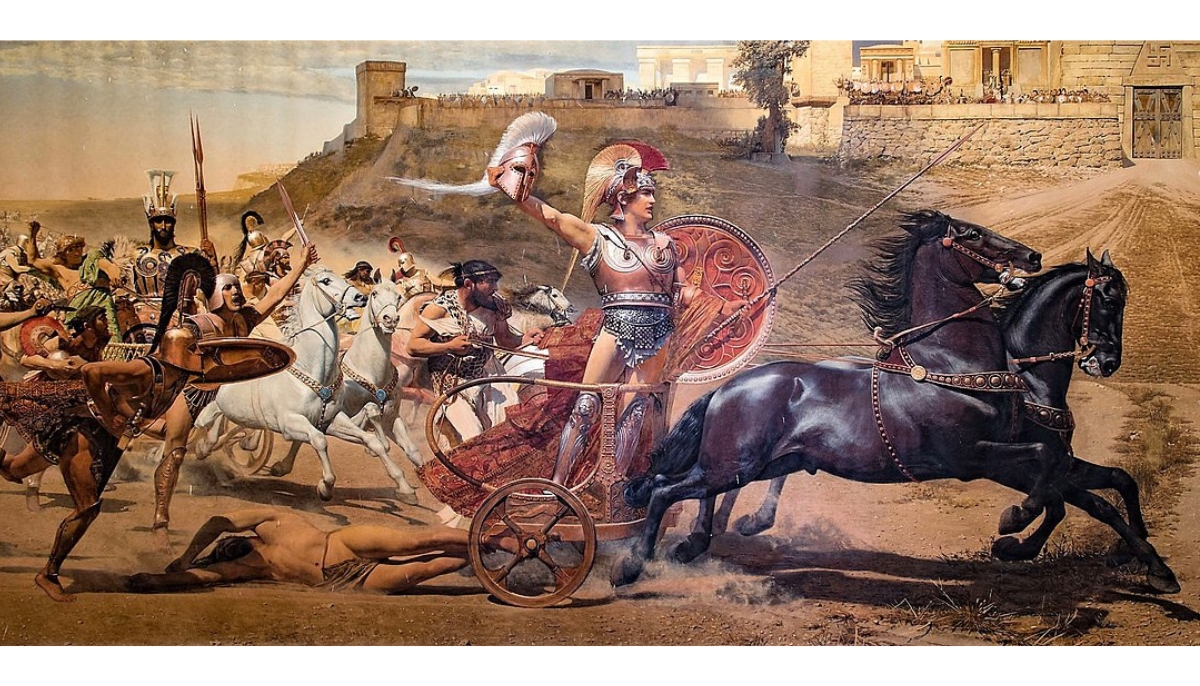
Leadership went beyond battle formations and tactical maneuvers for Alexander; it was about embodying the persona of a hero. Achilles was revered not just for his fighting skills but also for his leadership among the Greek warriors.
Alexander, too, was more than just a king to his men; he was their hero, leading from the front, just like Achilles led the Myrmidons.
Living the Heroic Code
Alexander’s emulation of Achilles extended into his personal life as well. He upheld values of courage, nobility, and honor—qualities that Achilles personified in the Iliad.
It’s said that Alexander would often isolate himself with the epic poem, contemplating how to align his life and destiny more closely with that of his mythical ancestor.
It becomes evident that for Alexander, emulating Achilles was more than a fanciful desire; it was a calculated strategy and, perhaps, even a personal mission.
In his mind, the line between history and myth blurred, making his life a living epic.
Did Alexander Wear Achilles’ Armor?
Achilles’ armor, as described in the Iliad, was divine in origin. Forged by the god Hephaestus, it was a marvel to behold—helmet, shield, and all.
This celestial armor symbolized Achilles’ invincibility and divine protection, making him a formidable warrior in the Trojan War.
The Story of Alexander the Great and Achilles’ Armor
When Alexander crossed the Hellespont and landed in Asia, he made a significant detour to visit a shrine near the burial site of Achilles.
Here, it’s said, he donned a suit of armor purported to have belonged to his mythical ancestor. But was this Achilles’ armor?
A Gift from Xerxes
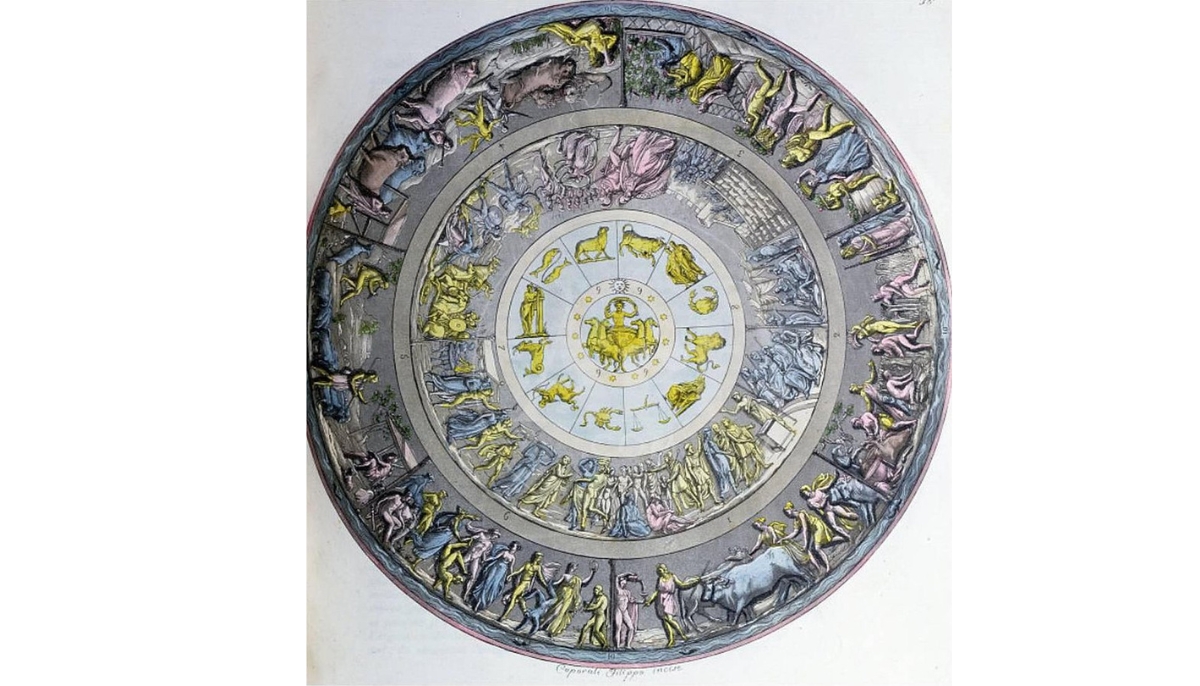
Surprisingly, the armor Alexander took was not Achilles’ after all. According to historical accounts, this suit of armor was bestowed upon the temple’s priests by Xerxes, a king from the very Achaemenid Dynasty that Alexander aimed to overthrow.
Alexander donned this armor before his first victory against the Persians at the Battle of the Granicus, unaware of its true origin.
At the time, the priests probably found Alexander’s actions presumptuous. After all, he had yet to prove himself against the Persian satraps.
But as history would show, Alexander’s victories in the subsequent years would erase any doubts about his audacity or his right to the armor.
Did Alexander Consider Achilles a Rival?
When discussing Alexander and Achilles, the term “rival” may seem unusual. After all, one is a figure from mythology, and the other is a historical figure separated by centuries.
For Alexander, Achilles was an ideal to strive towards rather than a rival to compete against. The goals, the glory, and even the pitfalls of Achilles offered a roadmap for Alexander’s life.
Yet, Alexander wasn’t content just following in Achilles’ footsteps; he aimed to exceed his exploits.
Setting New Benchmarks
Achilles’ conquests were confined to the Trojan War, while Alexander’s spanned continents. It’s plausible that Alexander used Achilles’ heroism as a baseline to exceed, not merely match.
By conquering territories far beyond those described in the Iliad, Alexander could feel he had surpassed his mythical ancestor.
A Rival in Legacy
While they never met on the battlefield or competed in the classical sense, the notion of legacy brings these two figures into the realm of rivalry.
For Alexander, the stakes were not just worldly conquests but eternal glory. In this sense, every victory, every city founded, and every act of bravery was a step in emerging from Achilles’ shadow to create a legend of his own.
Alexander’s relationship with Achilles was nuanced. He revered Achilles as a model of heroism but also sought to outdo him in deeds and glory.
So, while Achilles was not a rival in the conventional sense, the pressure to surpass his legendary ancestor made him a rival in the legacy arena.
